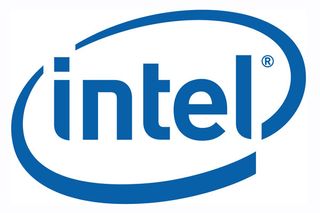Intel unveils Lynnfield desktop and server processors
Chip maker releases new versions of its Core i7 processor and new Core i5 aimed at desktops, along with new entry level Xeon processors.

Intel has released three new processor families based on its new 'Lynnfield' architecture aimed at high-end desktops, mid-range computers and entry-level servers.
For high-end desktops, the chip company has released two new Core i7 parts the 2.93GHz 870, and the 2.8GHz 860, while at the mid-range, we have the new Core i5 750, with a clock-speed of 2.66GHz.
The main difference between these two parts is that the higher end Core i7 sports hyper-threading', which with compatible software enables each of the processors internal cores to work on two software threads at the same time.
However, Intel's Turbo-boost technology is also included for where the processor detects that the software requires improved single thread performance. Intel said that this can deliver a performance boost of up to 400MHz. The processors also have 8MB of Level 3 cache.
Both processors however are derived from Intel's Nehalem' architecture, based on a 45nm manufacturing process. They feature four cores and have a thermal design power (TDP) of 95 watts.
However, for cost cutting, Intel has simplified the architecture from the original Nehalem by reducing the integrated memory controller from three channels to two and replacing the QPI internal bus with the simpler DMI interface.
Intel has also moved the PCI Express controller into the processor itself. As such, Intel has also released a new P55 chipset for the new processors, which sports a simpler, single chip design.
Get the ITPro. daily newsletter
Receive our latest news, industry updates, featured resources and more. Sign up today to receive our FREE report on AI cyber crime & security - newly updated for 2024.
The new processors also have a reduced pin count of 1156, which requires a new socket. Thus, despite having the same branding, the new Core i7 Lynnfield' chips are not compatible with previous Core i7 motherboards.
Pricing starts at $196 for the Core i5 in batches of 1,000 and rise to $562 per 1,000 units for the Core i7 2.93GHz.
Server side
On the server side, Intel has unveiled six new members of its Xeon 3000 series family aimed at entry-level servers and workstations. These operate at clock speeds ranging from 2.93GHz for the X3470 to 1.86GHz with the low power L3426. The new processors have a TDP of 95W, save for the L3426, which runs at 45W.
The Xeon 3470 costs $589 in trays of 1,000, and goes down to $189 for the 2.4GHz X3420. The Xeon L3426 cots $284.
Also released are the supporting 2400 and 3420 chipsets, which Intel said offers more dependability for businesses and educational markets over standard desktops due to features such as support for up to 32GB of ECC memory and RAID.
Benny Har-Even is a twenty-year stalwart of technology journalism who is passionate about all areas of the industry, but telecoms and mobile and home entertainment are among his chief interests. He has written for many of the leading tech publications in the UK, such as PC Pro and Wired, and previously held the position of technology editor at ITPro before regularly contributing as a freelancer.
Known affectionately as a ‘geek’ to his friends, his passion has seen him land opportunities to speak about technology on BBC television broadcasts, as well as a number of speaking engagements at industry events.





